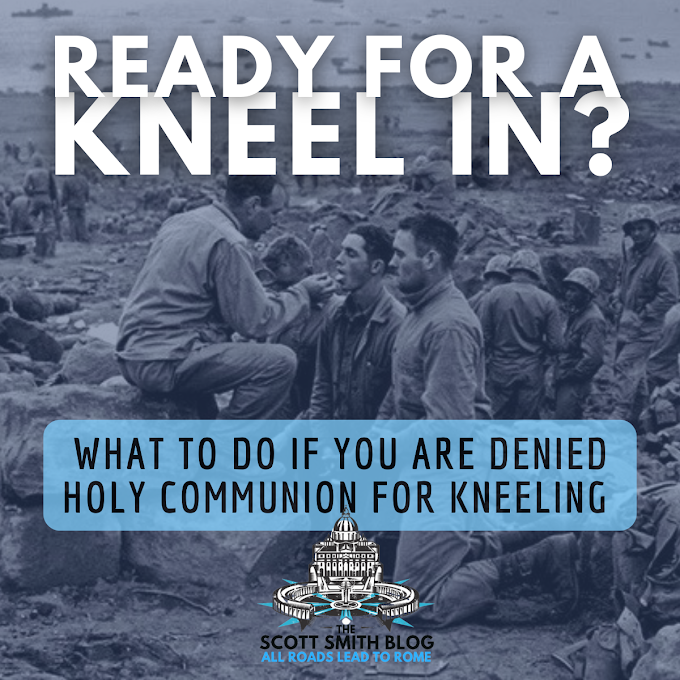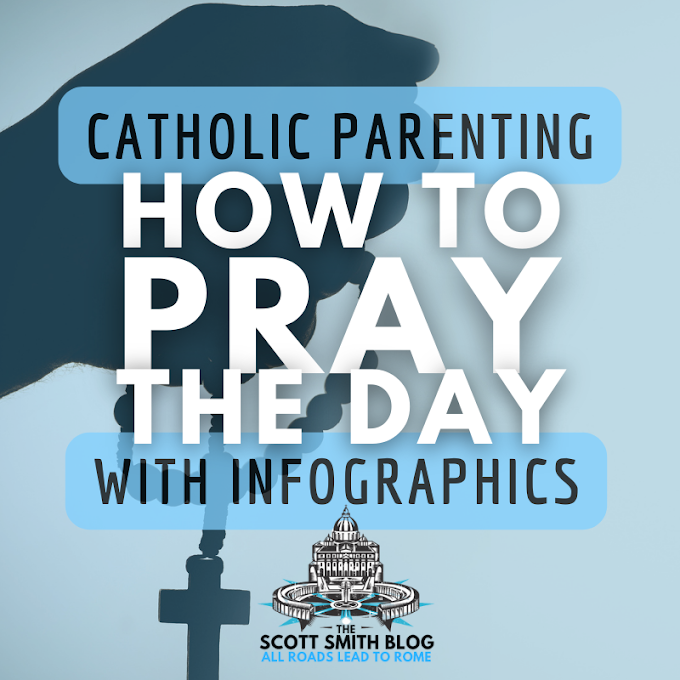There is much, much more going on in the Gospel account of the Wedding at Cana than meets the eye. Why does it sound like Jesus is speaking disrespectfully to his mother? Why does Jesus refer to his mother as "woman"? Why does Jesus create wine from bath water? All this and more below:
In the last post, the Hidden Throne of Israel, I showed where in Scripture the office of the Queen-Mother of Israel was first established and what this means for the Kingdom of Heaven. You may recall the scene between King Solomon and his mother, Bathsheba, at 1 Kings 2: 13-21. Now, in part two, I'll show you where in the Gospels this whole scene is repeated, except with Jesus and his mother.
In the last post, the Hidden Throne of Israel, I showed where in Scripture the office of the Queen-Mother of Israel was first established and what this means for the Kingdom of Heaven. You may recall the scene between King Solomon and his mother, Bathsheba, at 1 Kings 2: 13-21. Now, in part two, I'll show you where in the Gospels this whole scene is repeated, except with Jesus and his mother.
On the 7th Day, There was a Wedding at Cana
The second chapter of John's Gospel begins "On the third day there was a marriage at Cana in Galilee, and the mother of Jesus was there." In the following verse, John adds "Jesus also was invited to the marriage." Though Jesus is always the center of attention wherever he goes, John is placing special emphasis in this scene on the role of Mary by introducing her first.Notice the passing of days at the beginning of John's Gospel:
Day 1: "In the beginning ..." (John 1:1)
Day 2: "The next day ..." (John 1:29)
Day 3: "The next day ..." (John 1:35)
Day 4: "The next day ..." (John 1:43)
... then it skips to:
Day 7: "On the third day there was a marriage at Cana in Galilee, and the mother of Jesus was there." (John 2:1)
Why is John setting up this seven-day format for the beginning of his Gospel? It was clearly more than seven days from the beginning of time to the Wedding at Cana, right? Why mention the passing of days if it's not chronological or even logical?
Because there is a hidden logic to it! John is setting up the first seven days of the NEW Creation in Jesus Christ. What happened on the seventh day of Creation the first time around? There was a marriage in Eden. Adam and Eve were married: mankind made its first covenant with God.
So who does St. John say is getting married on the 7th day of the New Creation? The newlyweds are un-identified, but who is identified? "On the third day there was a marriage at Cana in Galilee, and the mother of Jesus was there. Jesus also was invited to the marriage." Jesus and Mary, the New Adam and the New Eve.
Wedding at Cana: The Queen-Mother is Petitioned/Prayed To
Notice the parallels between the Wedding of Adonijah from 1 Kings 2 (see the last post for more details) and the Wedding at Cana from John 2:On the third day there was a marriage at Cana in Galilee, and the mother of Jesus was there; Jesus also was invited to the marriage, with his disciples. When the wine failed, the mother of Jesus said to him, “They have no wine.” And Jesus said to her, “O woman, what have you to do with me? My hour has not yet come.” His mother said to the servants, “Do whatever he tells you.” Now six stone jars were standing there, for the Jewish rites of purification, each holding twenty or thirty gallons. Jesus said to them, “Fill the jars with water.”
In both situations, the king is asked to perform a task he does not want to do and both times his mother is petitioned to intercede before the king. In both situations, the king's mother is petitioned to intercede before the king, and in both, the king "does not refuse" her.
John's Gospel is clearly describing the role of the Queen-Mother in the New Kingdom of Israel by referencing 1 Kings 2.
King Solomon did not want to give Adonijah the bride he was praying for, because with that marriage would come an alliance that would tilt the balance of power against Solomon. Wise King Solomon, therefore, grants Adonijah's request and then kills him.
Jesus, the King of Kings, did not yet want to perform a public miracle, especially one associated with wine because wine would be associated with his "hour" which "has not yet come". Jesus "hour" would be the time of his Crucifixion when he would drink the four cups of wine at Passover, the last of which he would drink on the cross. Nevertheless, like Solomon, he grants his mother's request, creating at least 120 gallons of the finest wine from bath water.1
Wedding at Cana: Connection to Baptism
Notice that the jars were filled with water used for Jewish rites of purification, i.e. the Jewish rites from which baptism was born. Jesus, therefore, takes the dirty water left behind from the washing away of our sins and creates exquisite wine.

Sidenote: Jesus, Not Against Alcohol at the Wedding at Cana
Also note - the wedding guests had been drinking for days, and Jesus creates for them, on the low side, six hundred more bottles of wine! That's a bottle of wine for every one of King Solomon's wives! After this scene, how could anyone say Jesus is against the drinking of alcohol? There were no little cups of grape juice at this celebration, just saying. For more on this, read this article about the "wine on the lees" prophesy fulfilled at the Wedding at Cana.
Jesus: Not Disrespecting his Mother at the Wedding at Cana
I have often heard Jesus' words to his mother, "O woman, what have you to do with me?" used to show that Jesus had cast off this mother. First off, Jesus, even though he was both God and man, would never violate the Fourth Commandment, "honor thy father and thy mother." Even saying that is akin to blasphemy.So, why then, do Jesus' words sound so harsh? Two things need to be understood: (1) Jesus refers to his mother as "woman" because he is confirming the prophesy of Genesis 3:15 and claiming Mary as the New Eve; and (2) "what have you to do with me" is a phrase indicating the speaker's submission to the will of another.
(1) The New Eve & The Protoevangelium
Remember, the Wedding at Cana occurs on the 7th Day of the New Creation. Just as Adam and Eve were present on the 7th day of the Creation, so the 2nd Adam and the 2nd Eve are present on the 7th day of the New Creation. How is Eve referred to in Genesis? She is called "woman".Amazingly, though, Mary, too, is called "woman" in Genesis!
I have written about Genesis 3:15, the Protoevangelium or "First Gospel", elsewhere, if you're interested: "The First Prophesy in Human History." The idea is that, immediately following the Fall, God tells Adam and Eve, "I will put enmity between [the serpent] and the woman."
God speaks in future tense, i.e. "I will put", so God is speaking of a future woman. In the same verse, God also says the woman's seed will "crush the serpent's head," meaning her child will defeat Satan, i.e. she will be the mother of the Christ. This future woman, the mother of the Messiah, will be an enemy (enmity) of Satan her entire life, even from her conception - her Immaculate Conception!
Jesus speaks to this same "woman" at Cana, the Virgin Mary, and addresses her as such. This is why Jesus calls Mary, "woman", to show the fulfillment of the prophesy from Genesis -- that Mary is the New Eve!
(2) "What have you to do with me?" is the opposite of disrespectful
There is one other time this phrase -- "what have you to do with me?" -- is asked in Scripture. Do you remember where? It's sort of an unlikely place.This phrase occurs again in Mark 5. In this passage, Jesus exorcises the Gerasene Demoniac, a possessed man who lived among the tombs and had, several times, broken to pieces the chains which bound him. Here is Mark 5:6-7:
And when he saw Jesus from afar, he ran and worshiped him; and crying out with a loud voice, he said, “What have you to do with me, Jesus, Son of the Most High God? I adjure you by God, do not torment me.”
The possessed man "worships" Jesus, saying "what have you to do with me." Though humans might mistake the Son of God for an ordinary man, demons do not. Jesus has dominion over the angels, even the fallen ones. After all, He created them. Therefore, they slam themselves to the ground before Jesus and "worship" him. In doing so, the demon directs the same phrase at Jesus that Jesus earlier directed at his mother. "What have you to do with me" does not convey disrespect at all, but quite the opposite. Jesus is conceding to the will of the Queen-Mother.
Wedding at Cana: Conclusion
Can you believe all this meaning is packed into such a short passage? Every Catholic needs to be armed with a thorough understanding of the Wedding at Cana - please share this with friends! Can you see now how important this passage is to the Catholic teaching on the Virgin Mary?This short Gospel passage is a sweet display of love and affection of a son for his mother. How grand the gesture! The King of Kings bowing down to simple peasant girl and placing on her head a "crown of twelve stars." If we are to be like Jesus, we, too, must crown Mary the Queen of our everything.
Let me know what you think about this. Please comment below!












16 Comments
Thanks
God bless
Our Queen Mother is the perpetual Virgin Mary (both/and)
https://eucharist-emc2.blogspot.com/2017/01/einsteins-epiphany-moments.html
Write back if you'd like to read a little story that happened on my honeymoon. Talk about intercession!
Just one question: is it on purpose that your links open on the same page? I personally like it better when they open up in a different window, as I can choose either to read through the new information immediately if it is short, or read it with all due attention AFTER (= without forgetting to do so)... Sometimes I leave all the windows open on my computer, and can continue the reading of every specific information when I come back- Whereas if everything opens in the same window, you can easily loose the initial post (forget to finish reading it) as each information you follow opens a new window with a whole bunch of other links (and you have to back up all the way through, to finish the initial post). You see what I mean? Anyway, I suppose it's a matter of preference... just wanted to make sure- if you like it that way, I'll just do with it, haha... Take care + the Lord and His/Our Queen bless you!
"The Gospel of Mark (6:3) and the Gospel of Matthew (13:55–56) mention James, Joseph/Joses, Judas/Jude and Simon as brothers of Jesus, the son of Mary. The same verses also mention unnamed sisters of Jesus.
Sibling: James, brother of Jesus...
Parents: Mary, mother of Jesus
https://en.m.wikipedia.org › wiki
Brothers of Jesus - Wikipedia"
- the Greek for "brothers" is adelphoi, which is kinsmen or cousins
- those men are elsewhere identified as the sons of Mary, wife of Clopas
- if Mary was surprised that she should give birth at the beginning of her marriage ("I know not man"), why would she later have marital relations?
- "Until" doesn't imply a change in circumstances in Greek or Hebrew, i.e. Jesus will be with us *until* the end of the age, doesn't mean he's leaving us after the age.